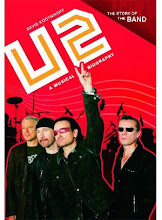
A quiet spectacle occurs at dawn every day in Luang Prabang, the former royal capital of Laos. Hundreds of saffron-robed monks file out from the city's monasteries seeking alms. In small groups throughout the streets of the historic old town, locals line up and kneel, heads bowed in silence. As the monks pass by, they place offerings such as rice and money in the monks' silver bowls and receive blessings for the coming day.
It's a peaceful image at odds with the country's violent past. Years of war and poverty have left the landscape visibly fractured. During the Vietnam War, the U.S. dropped the equivalent of one planeload of bombs on the country every eight minutes in a futile effort to defeat the Vietcong. Because of this, Laos earned the dubious distinction of being the most heavily bombed nation in the history of warfare.

There's little evidence of that this quiet morning. After following the procession through the rising heat and dilapidated grace of the old town, I walk over to Laos's most revered temple, Wat Xieng Thong, built in the 16th century. I meet Samone, a 20-year-old monk relaxing in the shade of a tree. I make out a few tattoos underneath his robe as he explains that his years at the monastery are almost up. Out of economic necessity, many Lao send their sons to a monastery, where they can receive basic shelter, food, and education. Samone explains he's now ready to move to Vientiane, the capital, and enroll in university. He plans to study English and perhaps work as a tour guide, get married, and buy a new scooter. He's lucky–he has a sister in the U.S. who can provide some assistance. University is out of the question for most in a country for which the CIA's
World Factbook estimates the annual per capita income at only about US$2,400.

On the edge of town, a short distance from the temple, is the outdoor Hmong market. The Hmong are one of many hill tribes scattered across Vietnam, Myanmar, Thailand, and Laos, in an area known, because of its opium production, as the Golden Triangle. They are comparative newcomers to Laos, having arrived from southern China at the beginning of the 19th century, and they have long been met with suspicion. After the Vietnam War, the Hmong were severely persecuted by the Communist government for supporting the wrong side. Today, forced relocation and urbanization have scattered them as far as the United States.

They have an international reputation for their artistry, and many survive by selling crafts and textiles. After a few minutes of browsing, I find myself haggling with a girl about 10 years old. She looks sweet enough in a pink Hello Kitty T-shirt, but she's as tough as nails and knows her English numbers as well as any accountant. After negotiating like a seasoned pro, she gets her price: US$40 for a large aquamarine blanket embroidered with her tribe's trademark geometric patterns.

We decide to visit a Hmong village just outside of town. As we turn off the dusty main road into a dirt compound, we find a group of women grinding corn with a large swinging pestle and others gathered in the shade of their huts sewing bright designs on fabrics that they will sell in town. I'm welcomed by an older woman with a beatific smile that consists of one single tooth. She takes my hand and pulls me into a hut. Through the cloudy sunlight I make out a group of men sitting on the dirt floor. One reaches up and pulls on my hand for me to sit down. As I do, another offers me a water pipe. It's opium. Suddenly everything swims into focus: the men are stoned. I smile and turn back outside into the clear sunlight.

The Hmong's relationship with opium is well-known. Some rely on it for economic sustenance, selling it to drug smugglers who eventually transfer it to Bangkok and Hong Kong for overseas export. The Hmong's connection to the U.S. is a well-documented tale of manipulation and betrayal. During the war, the CIA exploited Hmong resentment toward the government and actively recruited an anti-Communist faction. In return, the Hmong were promised aid and an independent state. At the end of the war when the Communist Pathet Lao became the new government, promises were forgotten, and the Hmong have been treated with suspicion and derision ever since.
The next day we take a boat ride up the Mekong River to the Pak Ou caves. After a few hours, we arrive at the final resting place for thousands of Buddha statues. Rather than destroy the images, the Lao prefer to bury them or place them in sacred caves. As we climb the staircase, row after row of Buddhas–in differing sizes and styles–comes into view, their wide eyes staring out at us in a surreal welcome.
On our final night in Luang Prabang, we walk up Phousi Hill for a view of the sunset. The hill is the geographical and spiritual centre of the city; it also happens to be capped with a rusted anti-aircraft gun dating from the Vietnam era. A couple of young monks sit casually on the barrel as the sun dips below the horizon. The contrast is striking: in just a few hours they will likely be offering blessings despite the country's shattered past.

 Aronofsky pulls off a genuine coup with this remix by smearing together different genres and archetypes. The results are stunning. Characters simultaneously rehearse and act in an "artificial" world, one created by the only "gods" worth mentioning - artists, authors, composers, directors. As a result, Natalie Portman is much more than simply Nina, a talented, but troubled ballerina from Manhattan preparing for the lead role in Swan Lake; she's also the embodiment of the twin characters Odette (the White Swan) and Odile (the Black Swan) from Tchaikovsky's ballet.
Aronofsky pulls off a genuine coup with this remix by smearing together different genres and archetypes. The results are stunning. Characters simultaneously rehearse and act in an "artificial" world, one created by the only "gods" worth mentioning - artists, authors, composers, directors. As a result, Natalie Portman is much more than simply Nina, a talented, but troubled ballerina from Manhattan preparing for the lead role in Swan Lake; she's also the embodiment of the twin characters Odette (the White Swan) and Odile (the Black Swan) from Tchaikovsky's ballet.  But Black Swan is anything but an absurdist farce or existential treatise like Stoppard's Rosencrantz. It's a terrifying psychological thriller, a fantasy mind-fuck that smudges both conscious and subconscious worlds into a dream-like trance, pulling the viewer into its orbit with the same gravitational force as Nina's visceral pirouettes.
But Black Swan is anything but an absurdist farce or existential treatise like Stoppard's Rosencrantz. It's a terrifying psychological thriller, a fantasy mind-fuck that smudges both conscious and subconscious worlds into a dream-like trance, pulling the viewer into its orbit with the same gravitational force as Nina's visceral pirouettes.  Portman is great, but like Winnona Ryder before her - who delivers a brief and compelling performance - she's too complacent at times when more Dionysian rapture is needed. The three other main characters - Vincent Cassel as the "sorcerer" who casts a spell over Nina; Barbara Hershey as the psycho-mum; and Mila Kunis as Nina's evil doppelgänger - all fill their designated archetypes perfectly. Aronofsky has succeeded in creating something truly unique - a mash of genres and goosebumps.
Portman is great, but like Winnona Ryder before her - who delivers a brief and compelling performance - she's too complacent at times when more Dionysian rapture is needed. The three other main characters - Vincent Cassel as the "sorcerer" who casts a spell over Nina; Barbara Hershey as the psycho-mum; and Mila Kunis as Nina's evil doppelgänger - all fill their designated archetypes perfectly. Aronofsky has succeeded in creating something truly unique - a mash of genres and goosebumps.


































